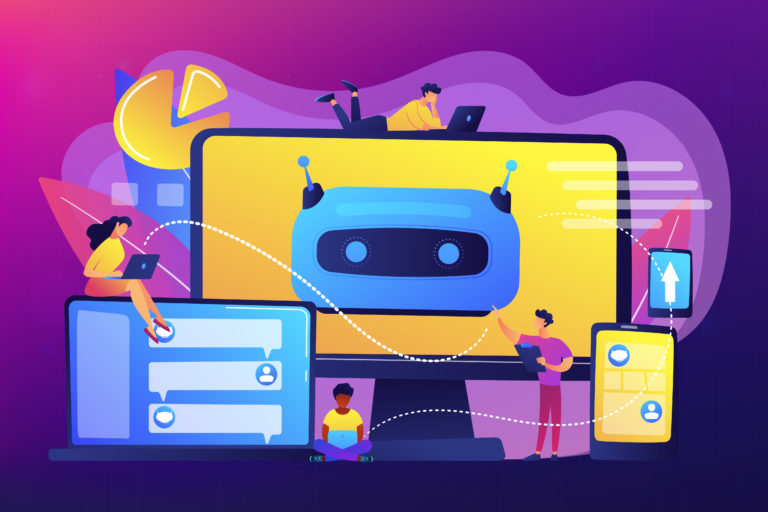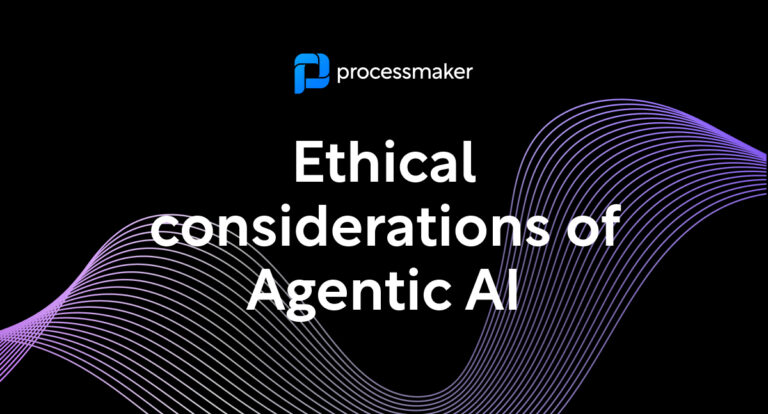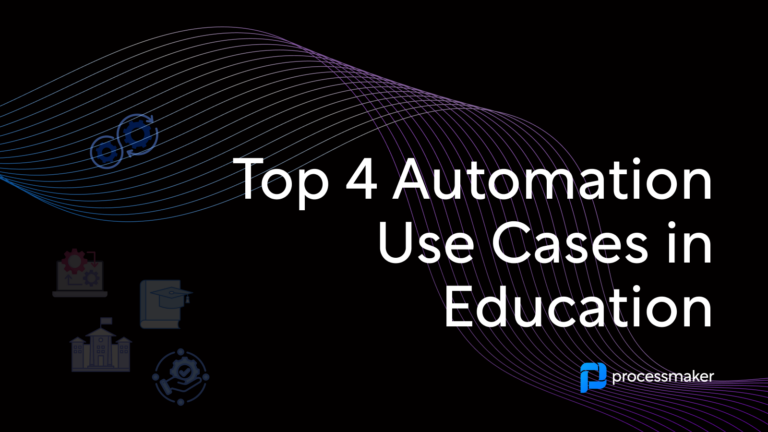The rise of artificial intelligence (AI) in our daily lives and in business raises questions from many. The primary concern is technology’s obvious advantages over humans in many areas, something that is a potential threat to the workforce we know today. The truth is that the workforce will be transformed as we know it, but not in the ways you may think.
Rather than AI eliminating the human element in customer experience strategy, AI can also enhance it. The human-machine collaboration will be a key differentiator in determining future business success in the next decade to come.
Read on to discover more about how humans and machines can work together, the benefits of collaboration, and how your company can nurture this relationship today to build a better business for tomorrow.
From “artificial intelligence” to “augmented intelligence”
For the last 60 years, artificial intelligence (AI) has evolved from a purely academic field into a powerful driver of social and economic change. AI is now the backbone of web search, apps, virtual reality, speech recognition, driverless vehicles, and more.
The greatest misconception about AI today is that AI will replace human work altogether. AI is expected to do everything for us, even take away some of our jobs. While many jobs in manufacturing, logistics, and transportation will be replaced with AI, these industries will be disrupted to produce new roles that work alongside AI to do more complex jobs. This has pushed a shift in the conversation about the nature of artificial intelligence.
What was known first as artificial intelligence is now more accurately called “augmented intelligence,” a human-centered partnership model of people and AI working together.
Augmented intelligence is when AI extends human judgment instead of replacing it, leading to greater cognitive performance. Rather than the robots taking over, technologists have recognized the importance of the human touch in AI. As automation expands, so do advancements in human-centered design. This combination, along with the benefits of humanizing tech, is already changing the way industries conduct business.
Enhancing the customer experience
Digital transformation is driving corporate customer experience (CX) strategies today. “Of all of the initiatives that companies are spending under the flag of digital transformation, most of the top 10 initiatives are related to customer experience,” revealed the most recent The State of Digital Transformation report.
For the last five years, brands have been exploring how they can use digital technology to deliver fast, accurate, and personalized services that customers demand. AI will radically change how customer service teams operate. In fact, Gartner predicts AI will disrupt more than 1 million phone-based customer support agent jobs by 2020.
According to Forrester, using AI to augment human intelligence leverages the superhuman capabilities of AI and empathy and judgment of humans to drive large, tangible business value quickly. This unique collaboration brings the best of both worlds to the table for the end-user. Humans teach AI models to be better and AI models teach humans too, resulting in greater insights, influencing strategy, and aiding in better product development moving forward. The result is a highly personalized customer experience.
The benefits of AI on CX
Research shows that consumers want a balance of human interaction and tech. In the customer service world, expect the following benefits to using AI to drive better CX:
- Accurate trouble-shooting. The perks of using an augmented agent like Erica or Eno is the amount of time it reduces to customer support. Call centers are swamped with customers needing help day in and day out. Long wait times just to ask one simple question can frustrate both the end-users and the human agent. Using automated commands via phone or through an app can help customers gain the answers they need without having to put a human on the other end. For more complex answers that AI can’t handle, a human can step in and help. By the time they get to the customer, they can address the issues quickly and with more efficiency.
- Personalized customer service. Voice assistants like Siri and Alexa help people get more done through speech recognition and Natural Language Processing (NPL). Pinterest is a search engine that relies on user data to recommend similar pins, just like Netflix does with its show recommendations for watchers. By incorporating AI’s predictive capabilities, a company can offer truly personalized CX.
- Buyback time for humans. Automation software was designed to keep efficiency at the front lines of business priorities. Popular enterprise software like Salesforce and Hubspot help teams to engage and nurture leads in the sales and marketing life cycles. Business process management (BPM) software empowers business users to design workflows to enhance productivity. Automating the simplest of tasks, like robotic process automation (RPA) software, can help humans focus on what’s more important, freeing up time to do work in strategy.
- Greater understanding of data. Predictive analytics using machine learning is one of the greatest tools to gain insights about consumer behavior. For social media, in particular, the feedback generated from content enables marketing professionals to create content personalized to the customer. These numbers prove the success or failure of campaigns and influence new ones based on what did or did not work. Mass data isn’t necessarily a good thing as much as good data, and AI can help pull the data that matters.
Nearly every sector is using reaping the rewards of a human-machine collaboration model. Perhaps the most notable is the banking industry, which uses chatbots and other personal assistants to help customers perform daily banking activities. Capital One’s Eno, an AI-powered bot, is a real-life instance of virtual assistants helping consumers. So is Bank of America’s Erica.
For companies like Square, AI has spurred high rates of customer satisfaction. Square is making waves among big banks and traditional competition for its innovative business model. “Our product is almost entirely automated,” said Jacqueline Reses, Head of Square Capital. “Our payment data is a core part of our modeling. Most lenders don’t have that data available, and that creates incredible differentiation.”
In other sectors, entire niche industries have been born from AI’s influence. Conversational marketing software like Drift engages potential customers with personalized, one-on-one conversations en route to specific product recommendations or offers. Using built-in chatbot and artificial intelligence technology, marketing, and sales executives can guide customers through different touchpoints of the buyer’s journey, capitalizing on rapid response times and personalization of the customer experience.
Users love this kind of tailored experience, which has fueled the demand for companies to implement stronger CX strategies to meet new demands.
Collaboration over competition
When the conversation is changed from artificial intelligence to augmented intelligence, the possibilities for business use cases expand. The right line of thinking turns into how AI-driven technologies and tools can augment the work of your employees to increase efficiency and your bottom line.
Additionally, while this partnership between AI technologies and people will still disrupt some jobs, it will overall present opportunities for job growth, higher efficiency, and greater earnings across nearly every industry. In fact, the World Economic Forum predicts AI will create 58 million new jobs by 2022. Yes, certain jobs will go away, but it will force the masses to adopt new skills to adapt to the changing world.
Robots aren’t taking over the world and humans aren’t disappearing, at least for a very long time. As long as businesses, leaders, and consumers stay united on collaboration over competition, the human to machine model will create stronger systems, better businesses, and improve the quality of life across the board.
Is your organization seeking a workflow automation solution to enhance your productivity, efficiency, and drive down costs? Learn more about how our cloud-based enterprise software solution is helping hundreds of companies accomplish more each day www.processmaker.com.
About ProcessMaker
ProcessMaker is a low-code business process management and workflow software. ProcessMaker makes it easy for business analysts to collaborate with IT to automate complex business processes connecting people and existing company systems. Headquartered in Durham, North Carolina in the United States, ProcessMaker has a partner network spread across 35 countries on five continents. Hundreds of commercial customers, including many Fortune 100 companies, rely on ProcessMaker to digitally transform their core business processes enabling faster decision making, improved compliance, and better performance.





